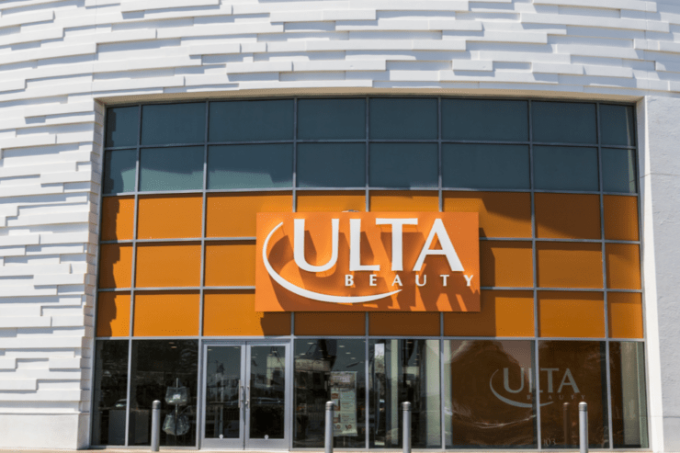Elevated competitors for net visitors and the rising prices of buyer acquisition proceed to make ecommerce more difficult. To mitigate these issues, Spiraledge Inc., the mum or dad firm of outlets that promote swimwear and yoga gear and attire, is utilizing synthetic intelligence (AI) know-how to take advantage of out of each shopper go to.
“Retailers are compelled to maximise conversion charges and common order quantity (AOV) for the visitors they’ve,” says Alexander Sienkiewicz, chief advertising officer at Spiraledge, which operates websites SwimOutlet.com and YogaOutlet.com. It ranks No. 256 within the Web Retailer 2018 High 1000.
Alexander Sienkiewicz, chief advertising officer at Spiraledge.
To assist it make one of the best of every shopper go to to its web site, the retailer about 5 years in the past began utilizing know-how from personalization vendor RichRelevance Inc. to assist information shoppers by way of its ever-changing catalog of greater than 100,000 SKUs.
“The extra SKUs a retailer has, the extra necessary personalization know-how is,” Sienkiewicz says. With out customized suggestions, shoppers simply can get misplaced and confused as they wade by way of hundreds or tens of hundreds of potential product choices, he says.
Along with serving to shoppers discover what they need, the know-how can be utilized to floor associated merchandise related to every shopper—probably growing the variety of gadgets in every cargo and AOV, Sienkiewicz says. That’s necessary as a result of boosting the variety of gadgets in every buy is extra worthwhile than promoting the identical quantity of products in separate orders, he says. That’s partly as a result of the retailer solely has to pay to accumulate one buyer.
For every of these duties, the personalization know-how has labored nicely however with sure limitations, Sienkiewicz says. Standard personalization know-how builds advice information primarily based on the click, shopping and shopping for exercise of shoppers—and that may restrict its effectiveness for retailers like Spiraledge, which repeatedly provides giant numbers of latest gadgets to its catalog, he says. As a result of new gadgets include no behavioral information, they won’t instantly present up within the product suggestions of shoppers, resulting in misplaced gross sales alternatives, Sienkiewicz says.
To handle that downside and make its personalization work higher, Spiraledge not too long ago grew to become an early consumer of RichRelevance’s Hyper-Personalization know-how, which makes use of pure language processing (NLP), a know-how that permits computer systems to know and analyze human languages.
The brand new RichRelevance know-how is designed to generate product advice information sooner. Like different know-how, Hyper-Personalization seems at behavioral data, but in addition makes use of NLP to research textual content data, together with things like product descriptions and manufacturer-provided data or product critiques that seem its web site or others, Sienkiewicz says. That NLP evaluation permits the know-how to be taught sooner than older strategies which relied closely on shopper interactions, getting every new merchandise in entrance of applicable shoppers extra quickly than different approaches, says Raj Badarinath, vice chairman of promoting and ecosystems for RichRelevance.
For instance, a consumer who searches for attire with unicorns may be provided gadgets with related qualities similar to “gentle” or “fuzzy,” even when the patron didn’t enter these search phrases. The Hyper-Personalization product can discover and use attributes described in any of the details about textual content data analyzed by the NLP. The know-how compares these attributes to these of things the patron is already taking a look at—in actual time, Badarinath says.
“It is a clear departure from the usage of behavioral information,” Badarinath says.
‘Good friction’
Past producing faster suggestions, a aim of the personalization know-how is to make the purchasing and shopping for course of simpler, however in some circumstances, additionally a bit slower. The RichRelevance software program seeks to facilitate a form of “good friction” by exhibiting shoppers extra related product suggestions about extra issues they need or want, Badarinath says. Slowing down the method just a bit, he says, can immediate shoppers to order extra gadgets, probably leading to bigger orders.
That’s necessary for smaller retailers like Spiraledge, Sienkiewicz says, as a result of it’s a lot simpler to earn a living on orders that comprise no less than two gadgets. “We wish to maximize our quantity per order,” he says. Personalised product suggestions helps the retailer try this, he says.
On common, Spiraledge sells greater than two gadgets per order, Sienkiewicz says, with out offering a precise quantity.
The implementation of the brand new RichRelevance know-how remains to be within the early phases, however preliminary outcomes have been promising, Sienkiewicz says. “Directionally, we’re seeing issues getting into the appropriate manner,” he says. For instance, Spiraledge noticed an 11% improve in click-through charges of advisable merchandise. It’s too early to evaluate what influence the NLP know-how can have on gross sales, he says.
Together with Spiraledge, RichRelevance gives personalization providers to 37 retailers within the Web Retailer High 1000, in accordance with Top500Guide.com.
Favourite





